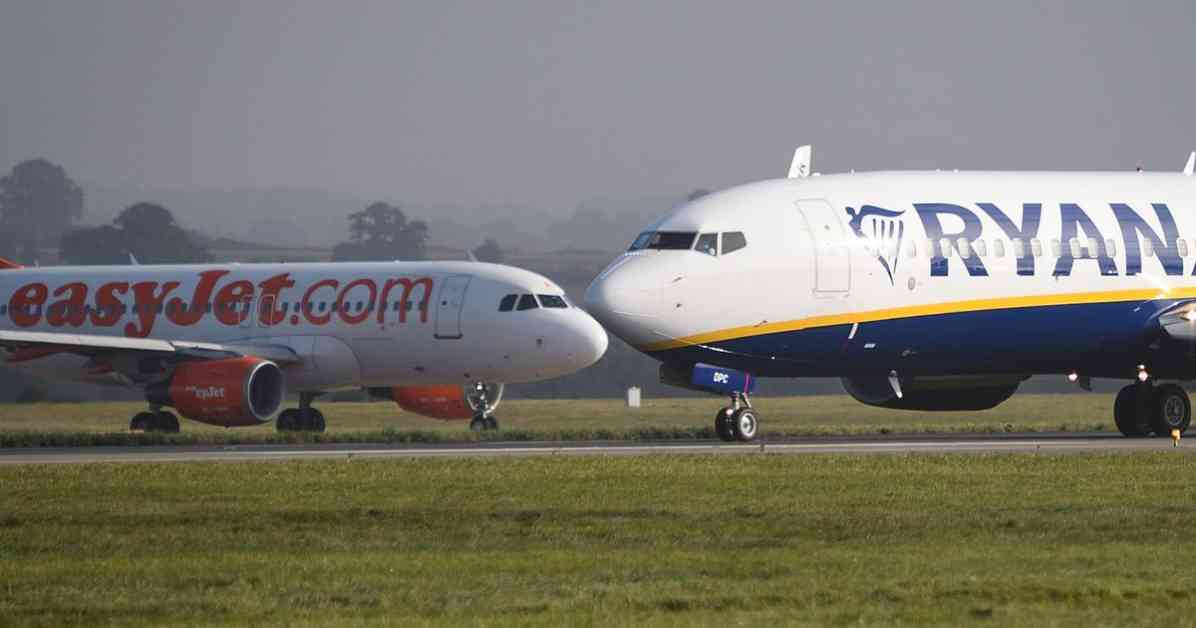Passengers flying with popular airlines such as Ryanair, Easyjet, Jet2, and TUI may soon find themselves facing an additional tax that could potentially bring in a substantial £6 billion a year for the UK. This proposed jet fuel tax is gaining traction among campaigners as a viable solution to help bridge the significant £22 billion deficit left by the Tory leadership.
Transport and Environment (T&E) UK recently conducted an analysis that suggests implementing a “fair” tax on jet fuel, similar to the duty currently paid by motorists and other industries, could generate annual revenues ranging from £400 million to £5.9 billion. This report challenges the long-standing belief that aviation fuel should remain untaxed. T&E UK is urging the Chancellor to take immediate action and impose fuel duty on as many flights as legally feasible. They are advocating for an initial rate of 9p per litre starting next year, with planned incremental increases aimed at aligning this duty with that of road fuels by 2030. If this proposal is implemented, it could lead to the tax being factored into future airfares.
Matt Finch, T&E UK’s policy manager, emphasized the urgency of the situation, stating, “With a £22bn black hole staring the country in the face, the chancellor needs to pursue any and all avenues to raise funds. The baffling lack of meaningful taxation of the aviation industry is a slap in the face of drivers, farmers, and our ailing rail system, all of which have paid their fair share for decades.”
British Airways, the largest airline in the United Kingdom in terms of fleet size, international flights, and reach, stands at the forefront of this discussion. Despite its size, it ranks second to easyJet in passenger numbers. Mr. Finch highlighted the need to address the environmental and economic impacts of the aviation industry, stating, “For the sake of the economy and the environment, it’s time to end the unfair anomaly that allows the aviation sector to pollute with impunity while not paying any [fuel] tax.”
Adding to the conversation, Tim Alderslade, CEO of Airlines UK, pointed out that the aviation industry contributed £3.85 billion to the exchequer last year through air passenger duty. He also noted that the phasing out of UK ETS free allowances for airlines is expected to raise between £1.6 billion and £4.1 billion between 2026 and 2033. Alderslade emphasized the sector’s commitment to achieving net zero emissions by 2050 and highlighted the UK’s position as a global leader in aviation innovation. He stressed the importance of government and industry collaboration to lead the transition to a net zero future without negatively impacting passengers or jeopardizing aviation’s role as a key economic driver in the UK.
The Impact of the Proposed Tax Increase
If the proposed jet fuel tax is implemented, it could have wide-ranging implications for both airlines and passengers. Airlines may be forced to adjust their pricing structures to account for the additional tax burden, potentially leading to higher airfares for travelers. This could impact the affordability of air travel for many individuals, particularly those who rely on budget airlines like Ryanair and Easyjet for their journeys.
Furthermore, the aviation industry as a whole may face increased pressure to reduce its carbon footprint and invest in more sustainable practices. The implementation of a jet fuel tax could serve as a catalyst for airlines to prioritize eco-friendly initiatives and technologies to minimize their environmental impact. This shift towards sustainability could ultimately benefit the industry in the long run by aligning it with global efforts to combat climate change.
The Debate Surrounding Aviation Taxes
The discussion around aviation taxes is not a new one, with stakeholders on both sides of the debate presenting compelling arguments. Proponents of the jet fuel tax argue that it is a necessary step to hold the aviation industry accountable for its environmental impact and ensure that it contributes its fair share to government revenues. They believe that taxing jet fuel is a practical and effective way to address the industry’s carbon emissions and promote sustainability.
On the other hand, opponents of the tax increase raise concerns about the potential economic repercussions, particularly for airlines already struggling to recover from the impact of the COVID-19 pandemic. They argue that imposing additional taxes on the aviation sector could hinder its recovery and lead to job losses within the industry. Critics also question whether the tax revenue generated would be used effectively to address the UK’s deficit and invest in sustainable infrastructure.
The Road Ahead
As the debate over the proposed jet fuel tax continues, it is clear that finding a balance between environmental responsibility and economic viability is crucial. The aviation industry must navigate these challenges while remaining competitive and innovative in a rapidly evolving global landscape. Collaboration between government, industry stakeholders, and environmental advocates will be essential in shaping the future of air travel and ensuring that it is both sustainable and accessible for all.
In conclusion, the proposed tax increase for airlines like Ryanair, Easyjet, and British Airways has sparked a heated debate over the industry’s environmental impact, economic implications, and the future of air travel. While the potential benefits of the jet fuel tax are evident in terms of revenue generation and environmental sustainability, the long-term effects on airlines and passengers remain uncertain. It is essential for all stakeholders to engage in constructive dialogue and work towards a solution that balances the need for economic recovery with the imperative of addressing climate change in the aviation sector.

